This summer, we went to the glorious Shambala Festival. There, we hosted The Community Garden. Over 3 days, we hosted 9 mini events including workshops on non-hierarchical working, open table discussions and activist networking sessions.
And of course we enjoyed the festival too!

Why Shambala Festival?
As one of the greenest festivals in the UK, Shambala are eco-pioneers. They run on 100% renewable energy, use no single-use plastics and have a ban on non-biodegradable glitter, faux-feather boas and costumes with plastic embellishments.
Around 15k people come to Shambala every year – a huge potential audience! They come to enjoy both an eclectic range of music and a smorgasbord of workshops, talks and discussions.
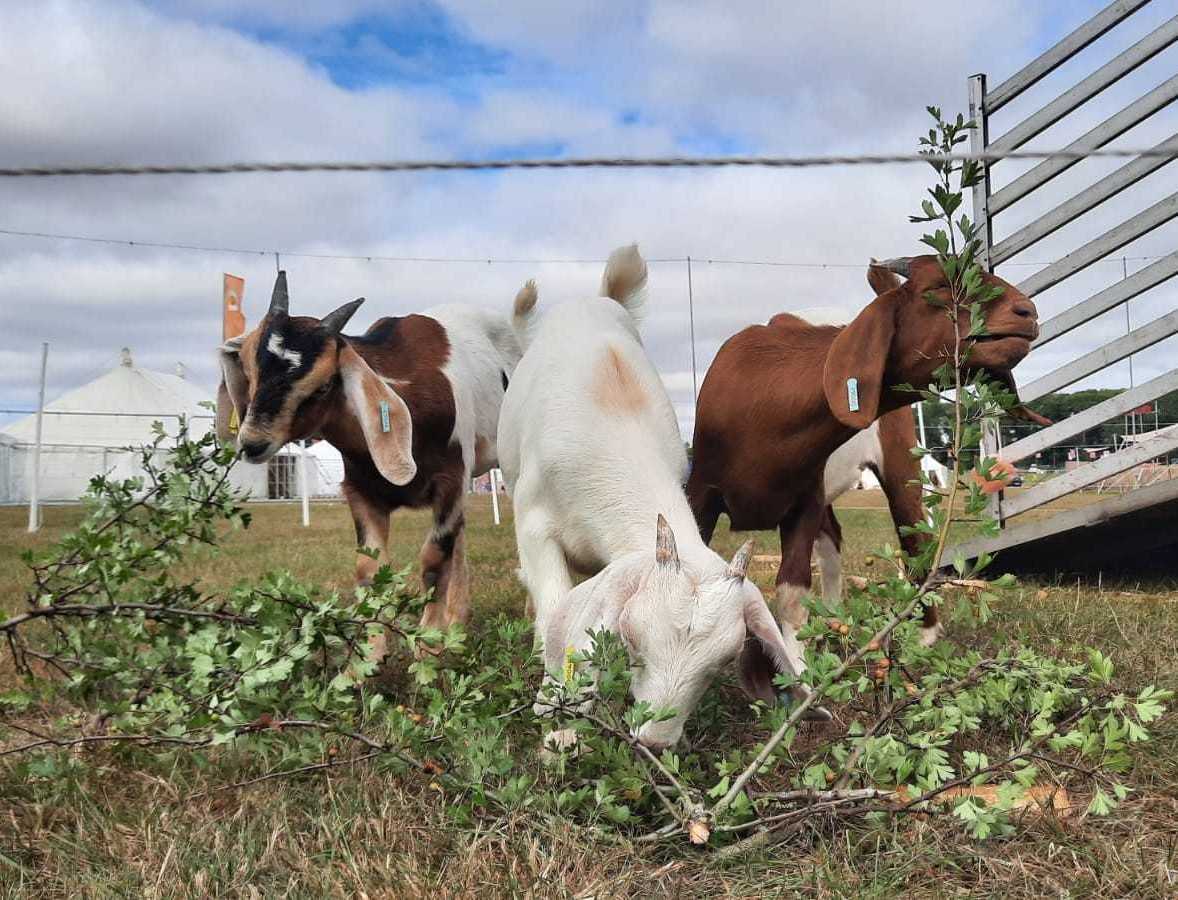
The Community Garden
We were lucky enough to host The Community Garden – our little area based in the Heaven on Earth zone. The description below paints a picture of what our section of the festival was like:
“Whilst billionaires smash-and-grab on a planetary scale and escape their crime scenes in weird phallic-shaped rockets, let’s get set to make heaven on earth without them. So, what does Heaven on Earth look like? Well, first of all, we are stronger together in The Community Garden, where we can collaborate, meet fellow change-makers and germinate the seeds of resilience. Whatsmore, we can cultivate our practical and grounded skills in The Thrive-All School, to help us to flourish as a fruitful collective. And, hone our talents as kitchen-witches in our cosy Cottagecore Kitchen, where together, we can learn how to make earthly pleasures & medicines of the food-sort. Then, we will sink our teeth into radical talks and conversations in the ‘Chew On This’ tent, where we Heaven dwellers have some amazing speakers to nourish, encourage and inspire our right-relationships with nature. And finally, we’ll all get-together in the Sustainabubble, to explore our relationships with our ecosystem, and share practical ideas, tips and tricks for how to make our footprints lighter.”
The workshops we ran were all based on the premise that “We are stronger together in The Community Garden, where we can collaborate, meet fellow change-makers and germinate the seeds of resilience.”.
And our schedule was as follows…
Day 1
- The transformative power of non-hierarchical spaces
- The open table: What does community mean?
- Collaboration-station: How we take back control of our future
Day 2
- Sowing the seeds of resilience: Let’s grow a future where we all thrive
- The open table: How do we heal the divide?
- Collaboration-station: How we take back control of our future
Day 3
- The transformative power of non-hierarchical spaces
- The open table: What is our place in nature?
- Sowing the seeds of resilience: Let’s grow a future where we all thrive
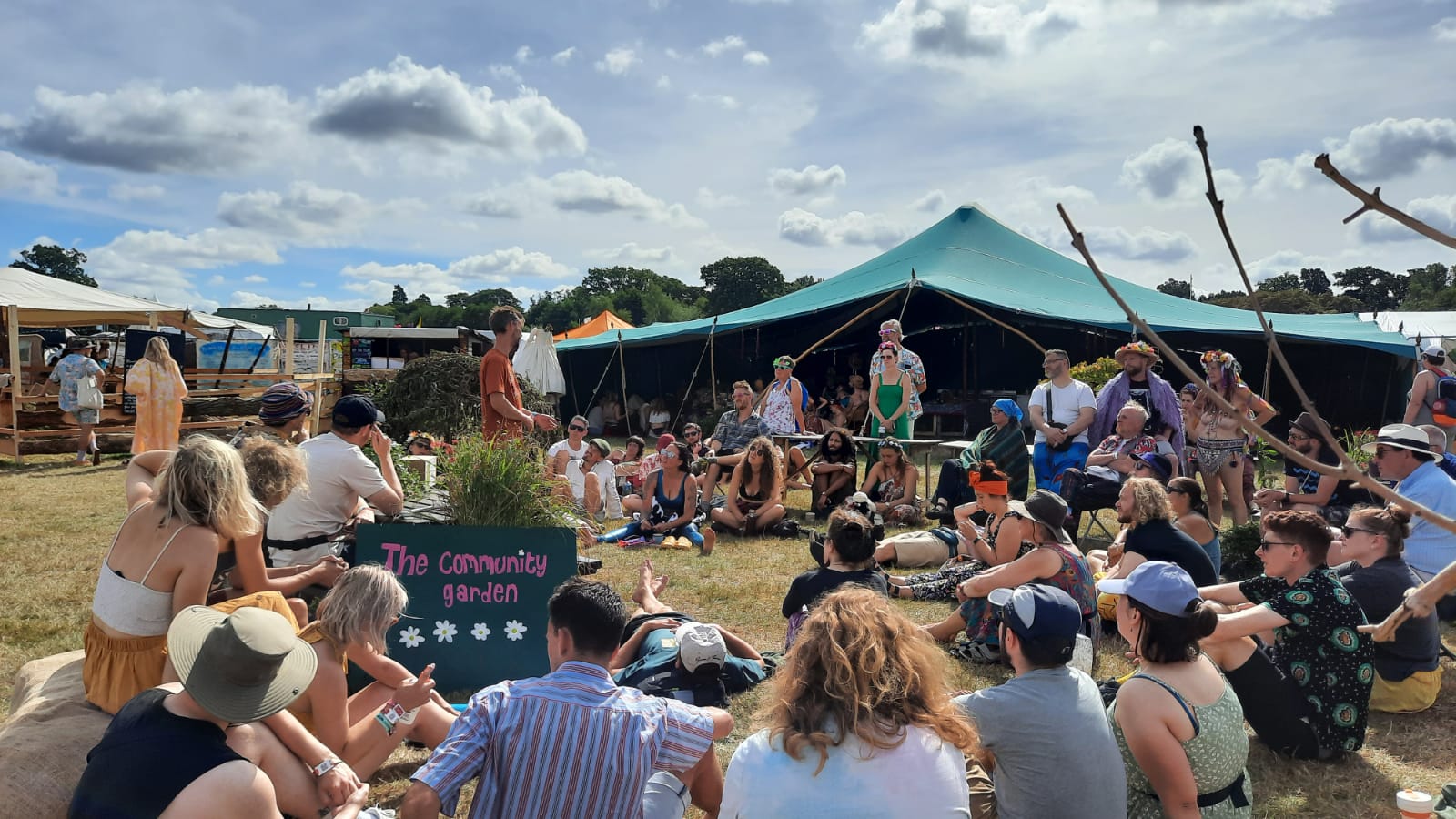
So if the workshop titles have got you intrigued, read on…
The transformative power of non-hierarchical spaces
In this workshop, the team firstly introduced the concepts of non-hierarchical working and sociocracy to the festival-goers. And we wouldn’t want you to miss out either. So here’s a brief explanation of these concepts:
Non-hierarchical organisation
Flat, non-hierarchical organisational structures mean an absence of managers and hierarchy in general. Each employee is empowered with greater responsibility and autonomy. Rather than work being done in departmental silos, learning can occur between work projects. And information is more readily shared thanks to a high level of transparency.
Sociocracy
Sociocracy is another kind of governing structure. Rather than hierarchical departments, small groups called circles are what define sociocratic structures. Each circle has a defined aim, domain and defined roles. Sociocratic meetings are defined by speaking in rounds – where, one-by-one, everyone gets a say. Circles also have decision-making powers – more on this later.
Back to the workshop! After laying the foundations for discussion, the group shared whether they’d had any experience with non-hierarchical working and sociocracy. We found there was a wide range of experience. Whilst some were very familiar and in fact practising, others were hearing about the concepts for the first time now. After this, we practised check-ins in rounds.
Check-ins
At the beginning of every Open Food Network meeting, we check ourselves in. This involves saying how you are feeling as a human and perhaps if there’s anything you need help with at work.
These check-ins can be customised to your workplace – but we think expressing how you are feeling is a really important one to keep. This simple process is a powerful way to get to know each other a little better and to involve everyone in the meeting from the get-go.
Decision-making via consent
The team then explained the decision-making processes that we use at the Open Food Network UK. Firstly, a team member presents the concept that requires a decision. Then we follow a three step process:
Step 1:
First impressions about the concept
Step 2:
Questions, clarifications and concerns
Step 3:
Consent or not
We do these three steps in rounds. As in, each team member gives their impression and once everyone has given their first impression, it’s time to move onto step 2 – and so on. By doing rounds, each team member is given an opportunity to speak – including those that usually stay a bit more quiet in meetings!
This is really beneficial because certain things may come to light that wouldn’t have otherwise – or perhaps would later on down the line leading to potential problems. It also means that everyone feels heard and involved in the decision – so they will be more motivated to get involved with the resulting work.
Feedback
After the workshop, we got great feedback. Attendees told us that they were motivated to implement these processes into their workplaces, co-op housing communities and even in their daily-lives.
We’re proud to say this was our most popular workshop – with around 50 people attending each session!
So popular, in fact, that we received requests to host this workshop again.
Following a successful online version of the workshop, we will be taking a deeper dive into sociocracy in our next webinar on Wednesday November 2nd at 17:30-18:30.
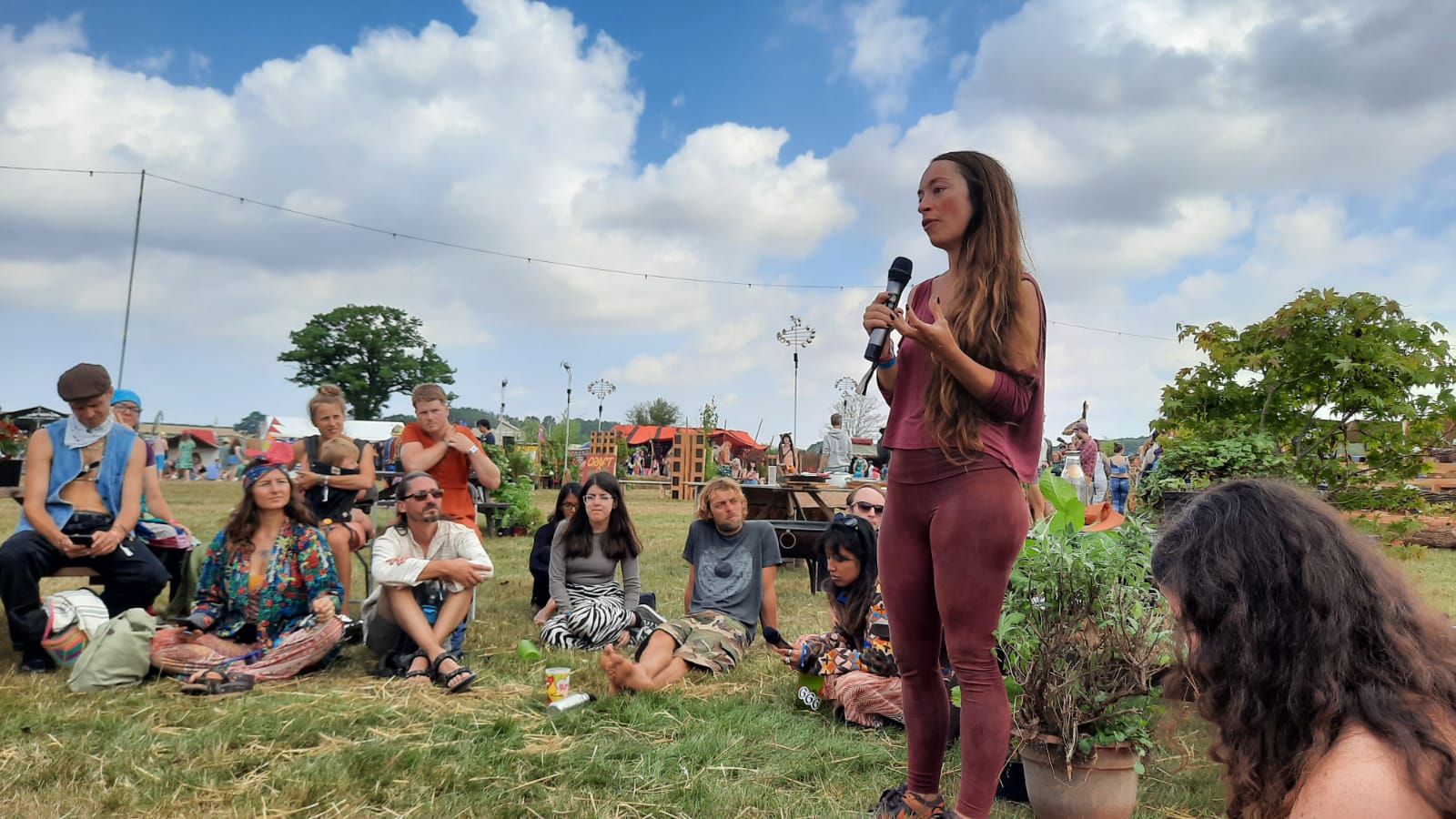
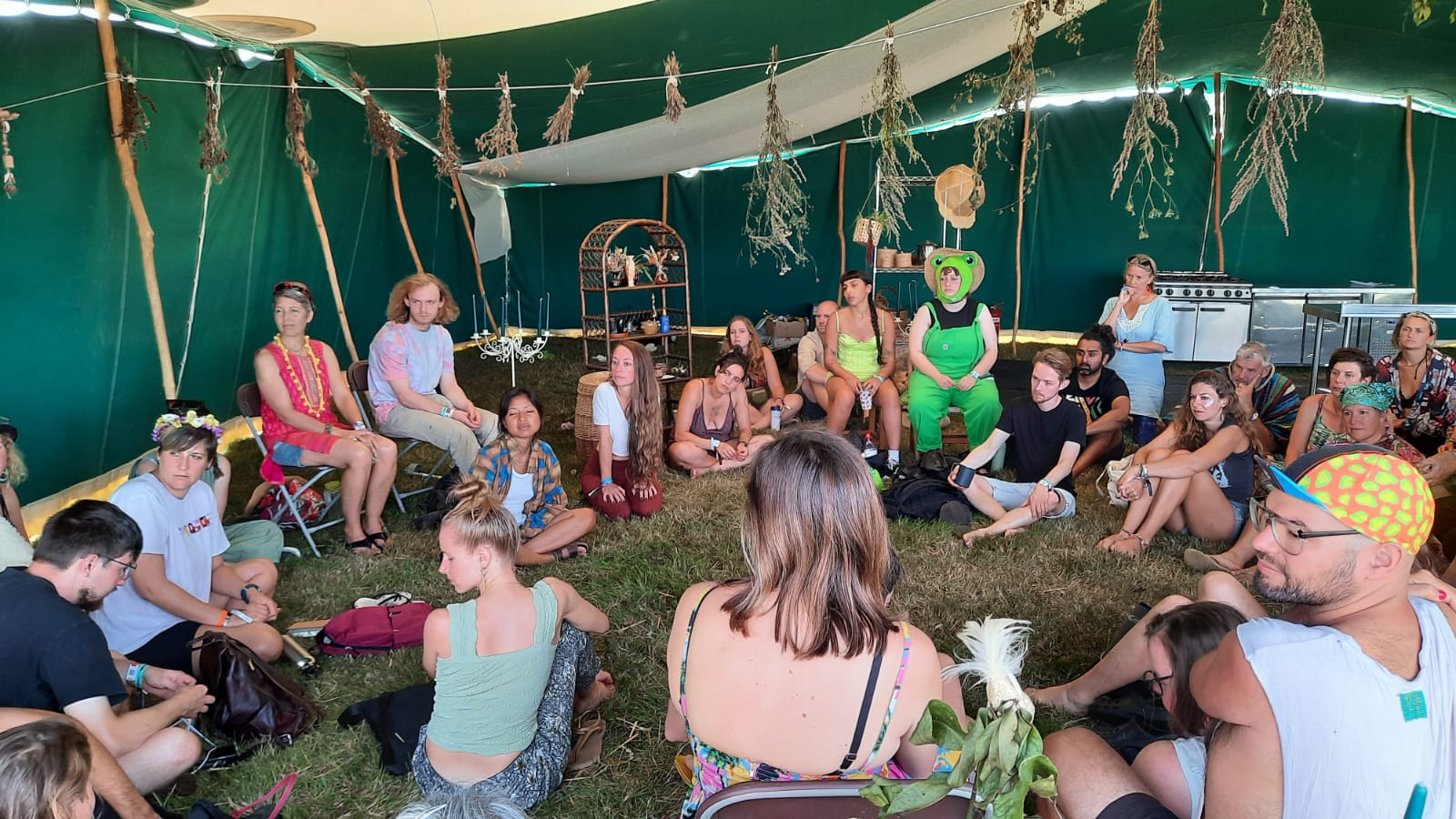

Collaboration-station: how we take back control of our future
This session enabled festival-goers to network with each other and connect on issues they care about.
To be fully transparent (as we like to be at the Open Food Network – being a sociocracy and all!), attendance was low for these sessions. There weren’t enough tables and chairs available in the festival area during our time slot so it wasn’t clear to the festival-goers where the session was actually taking place.
Lessons have been learnt!
That said, we have grand ideas for the collaboration-station concept. And we are excited to bring it to future in-person events.
Activist match-making or speed-dating is the idea. Not in the romantic sense – rather matching together activists based on their passions and areas of focus for change. We believe that all movements are stronger in numbers. And that really powerful and sustainable change can be made when people are connected.
Sowing the seeds of resilience: let’s grow a future where we all thrive
In this future visioning session, we took the attendees 10 years into the future via a guided meditation. In this future, humanity had managed to turn this ship around and avert all current and incoming crises.
To begin, we were grounded into the present moment. And then, with our eyes closed, opened an imagined door that was in front of us – this door led out to our neighbourhood in 10 years time. Drawing attention to all five senses, the group were enabled to imagine the future that they wanted to see, hear, feel, taste and touch.
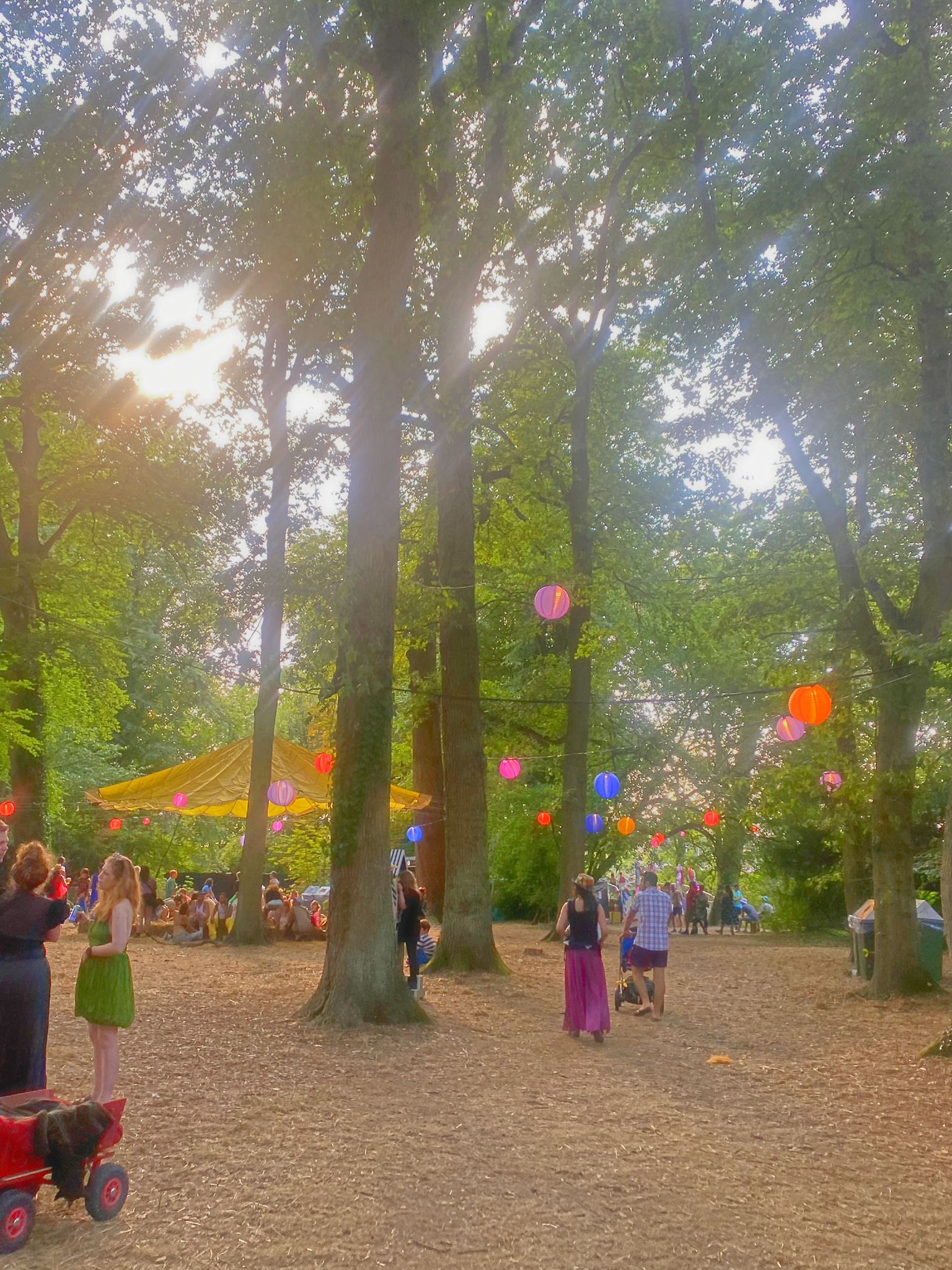
After a gentle land back into reality, we all shared what we experienced. It was moving for everyone involved and led to interesting discussions about how we operate in current mainstream society.
Since it was such a subjective experience, why not take a few minutes to imagine it yourself?
The open table discussions
Every day over the weekend, we held open table discussions – where we encouraged people to join us to talk about some juicy topics over lunch or a snack. The topics were:
- What does community mean?
- How do we heal the divide?
- What is our place in nature?

Each discussion uniquely sparked deeply reflective and nourishing conversations. It was a beautiful way to connect with one another – in a way a little different from the usual festival hubbub.
The sessions were based on the idea that ‘breaking bread’ together can be the best way to break down barriers. So we believe that by eating together during these lunch-time discussions, we were able to approach a difference in opinions more productively. Rather than feeling defensive and with our guards up when faced with an opposing point of view, everyone left refreshed – with new ideas and novel perspectives.
Altogether…
Altogether, hosting this variety of workshops in The Community Garden at Shambala 2022 was an unforgettable experience.
We’d like to take this opportunity to big up the lovely festival crew and to our awesome attendees who made our workshops so magical and fulfilling.
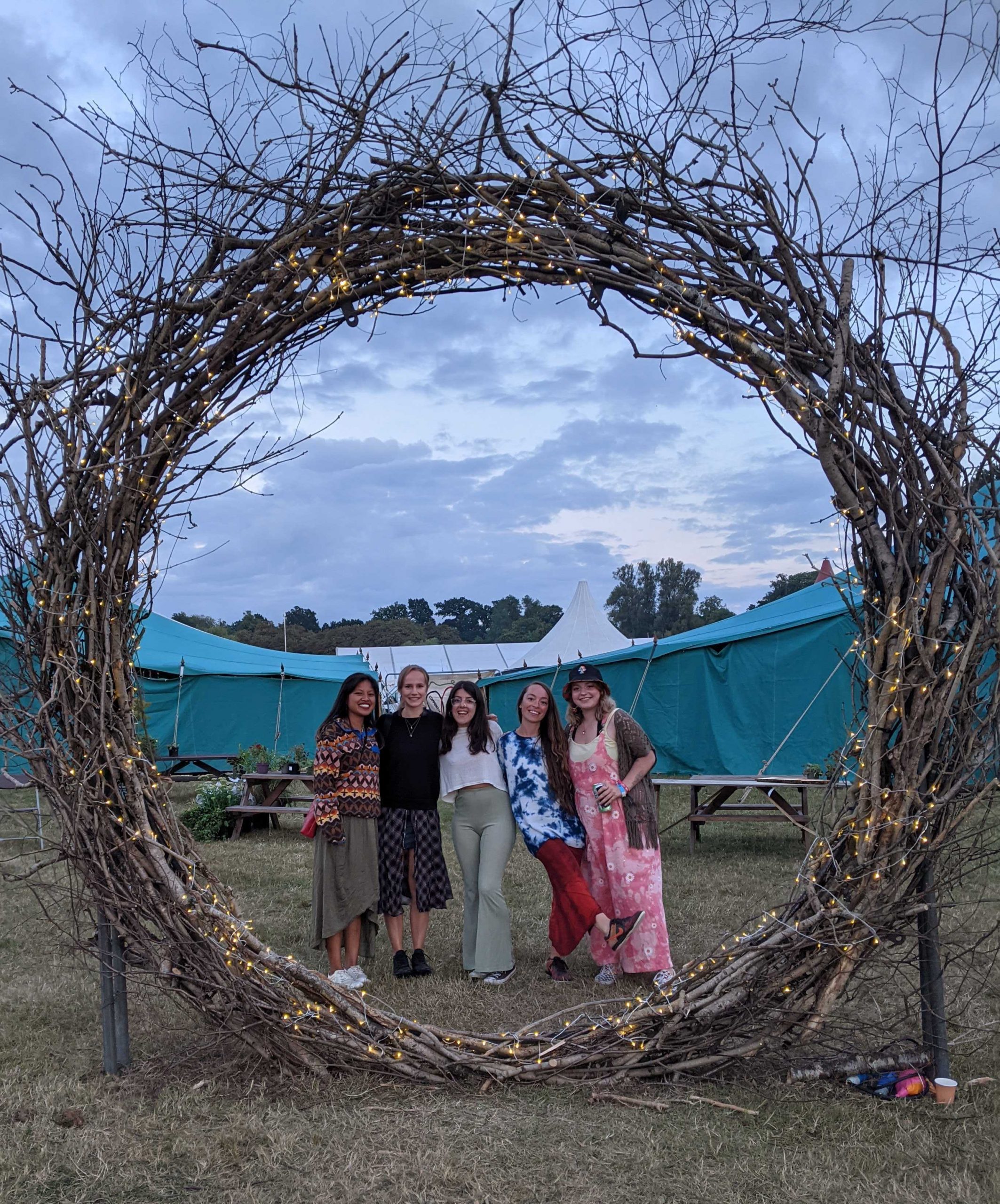
Did you go to Shambala 2022? Maybe you even stealthily attended one of our workshops? We’d love to hear about your experiences!
Looking forward, we’re so excited to take part in more festivals and other in-person events. In fact, we’ll be at the Oxford Real Farming Conference in January 2023 – hosting “How to grow a food hub: different approaches to creating a community food enterprise”. More info about this session soon.
Book tickets for ORFC 2023 here.
Want to take part?
We are hosting a webinar on an “Introduction to Sociocracy” on November 2nd at 17:30-18:30.
We’d love you to join us!
